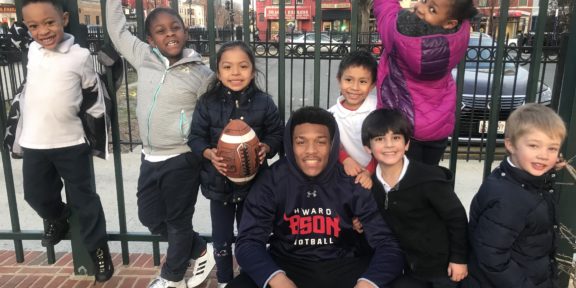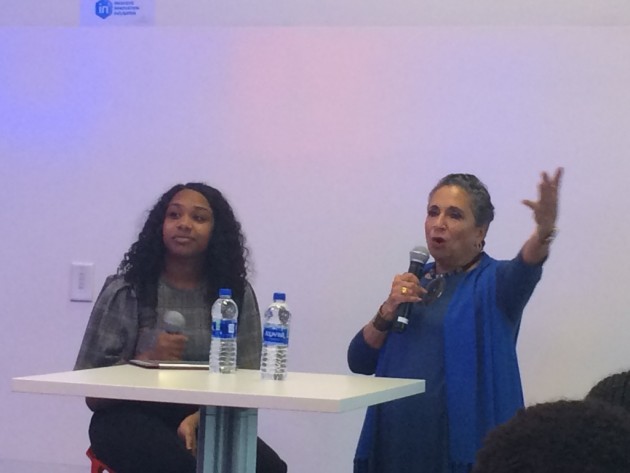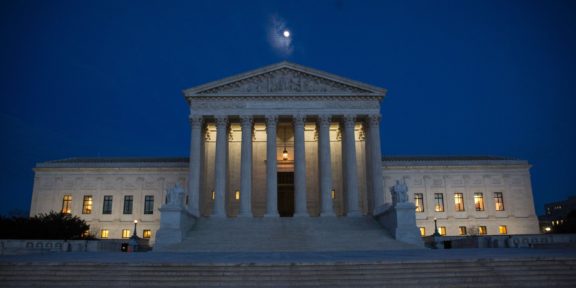Darreonna Davis, Howard University News Service
Nia Weeks is a New Orleans native, family and criminal lawyer and advocate for Black women in leadership and policy-making.
Weeks was a public defender who continues to practice family and criminal law today. She has also decided to pursue a career in policy development and civic engagement to spearhead systematic change. “I was getting really disheartened by navigating people through a system that absolutely is vetted for their failure… I’ve got to stop putting Band-Aids over dams. I’ve got to work in a way that is influencing a restructure of the system,” she said. From there, she went from being a public defender to the first policy director for Women With A Vision, Inc, a non-profit organization that focuses on reproductive justice, HIV/AIDS positive advocacy, the rights of sex workers and drug policy reform, to founding her own organization for Black women organizers and leaders.
Weeks is the founder and executive director of Citizen SHE and Citizen SHE United, leadership development and civic engagement organizations for Black women. She, as well as those involved in her organization, worked for New Orleans to become the first southern city to pass the CROWN Act ordinance, a measure that prevents natural hair discrimination in the workplace, public housing sector and other institutions.
“I did 87 projects around (the) CROWN Act and Black women’s hair and organizing, and it culminated and the CROWN Act passed in the city of New Orleans,” said Weeks. Her organization is currently working to make Louisiana the first southern state to pass the CROWN Act Ordinance, according to Weeks.
A survey by Essence Magazine proclaimed that 45 percent of Black women say that they experience racism most often at work. Dr. Rashida Govan, a New Orleans resident and the founder and executive director of Project Butterfly New Orleans, a rite of passage 501c3 organization that provides mentorship and programming for Black girls, believes passing the CROWN Act in New Orleans was an important measure of protection for Black women against all types of discrimination.
“It [the CROWN Act Ordinance] sent a message to the schools, businesses and other institutions that practice this sort of discrimination against Black people that they are on notice and have to change,” said Dr. Govan. Weeks and Govan collaborated on Citizen SHE United’s “Standing In Our Power” series, and Govan sent models for Weeks’ digital advocacy efforts for the CROWN Act.
Weeks’ work does not just stop in New Orleans, however. Some believed the 2020 election was the most important one in a long time, which prompted many organizers to set up registration drives. According to Weeks, the issue in Louisiana was voter turnout and engagement.
Her organization centered its work around getting people informed and excited for the election through debate watch parties, events honoring Black women in history, political role education sessions, amendment education, voter suppression training and a robust early voting strategy. “Our goal was 300,000 Black women showing up to vote, and 275,000 Black women showed up to vote in Louisiana,” Weeks said.
Weeks grew up in New Orleans with advocacy values instilled in her from a young age. She founded a social justice organization in high school and participated in and led protests in undergrad. She is an alumna of Indiana State University and Loyola School of Law.
Weeks’ time in law school was a defining point in Weeks’ life.
“I went through law school homeless with four children. My mom had dementia; I had just gotten diagnosed with diabetes—Type 1,” she recalled.
It was these hardships—combined with her legal experience—that gave her what it takes to advocate for Black women with various experiences and identities.
For this, Weeks continues to influence change in New Orleans amongst the women in her proximity. “She’s a progressive warrior who can use her words and ingenuity to help bring about progress,” said Weeks’ yoga teacher and friend, Adrianne “Ajax” Jackson, the owner of New Orleans’ first Black-owned yoga studio, Magnolia Yoga Studio.
“Aspects of her influence will be empowerment of women, education of women, getting Black women to be paid equally [and] valued,” said Jackson on what she believes Weeks’ legacy will be in Louisiana. Black women in Louisiana earn 48 cents to every dollar earned by their White male counterparts, and Citizen SHE United is one of many local organizations fighting for Black women’s economic justice.
Weeks operates five different businesses—Citizen SHE, Citizen SHE United, Black Women Lawyer Collective, Detangled and dabbles in consulting. Nia Weeks’ legacy is still being written, and her influence on policy in Orleans Parish and Louisiana as a whole will be felt for generations to come.











